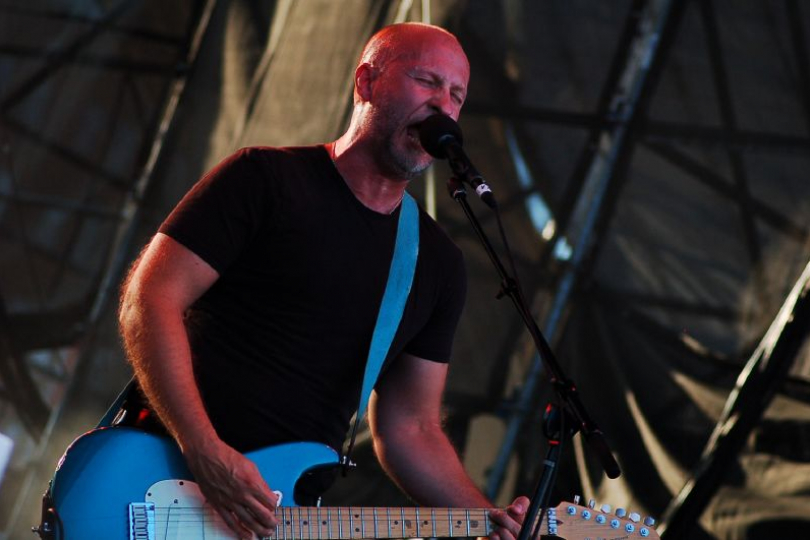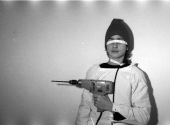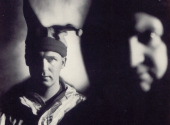
Milestones in Music History #17: Hüsker Dü: Hardcore Re-invented
Noise Music; Barret; Suicide; Velvet Underground; Desert Rock; the history of music is a perilous and yet appeasing path to walk. It has been, since the very beginning of times, this powerful gift, and music is possibly the most evolving and sophisticated form of art, which has affected culture, lifestyle, society, and history itself. The purpose of the Insounder series "Milestones in Music History" is to delight you with some of the pivotal moments in music, some acts, facts, and records that delineated and shaped music for years to come (actually as far as this series could go on). I have selected a few, based on my personal path through music culture and based on the fact that I firmly believe these moments radically changed everything.
Rockabilly and psychobilly contributed greatly to shaping the sound of the 80s, but also underlined the contrasts between popular and alternative music. In this episode, we continue from where we left off: the end of the 70s, a new wave of music that was more introspective and obscure. Music abandoned the hippy’s happiness and good thoughts. The new sound did not embody the possibility of getting reward and consolation, but it resolved into a powerful weapon to shoot out repression, depression and anger. The last glitters scattered on the ground by Bauhaus, are now covered in spit and vomit. Punk had already sowed deeply, underlining the ugliness and the negativity of our “beautiful” society. But that could not possibly be enough. The music machine required more aggressivity, power and speed. The time for Hüsker Dü had finally come.
In 1979 a band was formed in Saint Paul, Minnesota. Grant Hart, Bob Mould and Greg Norton, together with keyboardist Charlie Pine, formed the group called Buddy and the Returnables. Bob and Grant had met because Bob used to go to a record store called Cheapo Records, and Grant was a sales clerk there (Bob had also applied for the same job, without luck). But Greg and Grant also shared the same interest for punk and the Ramones. So, they managed to reach out to Greg and Charlie and started rehearsing together, mostly covering songs. Eventually, the band slowly alienated Charlie and changed the name to Hüsker Dü, from a popular 70s memory board game. The name originated while rehearsing the famous hit “Psycho Killer” by Talking Heads, as they couldn't remember the lyrics, the band started using nonsense words, including “Hüsker Dü,” which means “do you remember” in Danish and Norwegian.
Hüsker Dü, now with a new name and without Charlie Pine, had their first official gig on the 17th of May 1980, at Jay's Longhorn Bar, a punk club in Minnesota, largely known for punk, rock and new wave acts. They started to be known in the scene, and other punk bands started to notice them; like the already famous Black Flag, they also got the attention of Jello Biafra, the legendary Dead Kennedys' lead singer and songwriter. This definitely helped the band to reach more notoriety.
One year later, the band started releasing their first singles, after also being taken under the wing of Minutemen, a punk-rock band from San Pedro, California. This led to the release of their debut album, Everything Falls Apart, which sounded like punk rock, but was more aggressive, quicker and more direct. Hardcore was born. It was a genre that developed in those same years and the etymology was born from the 1981 album by the spectacular Canadian punk-rock band D.O.A., Hardcore ’81. Hardcore, like punk, meant to be subversive and raging but, unlike punk, wanted to be more aggressive and faster. Both genres share the discourse against the social norms and the exaltation of the rejects, but hardcore gets more to the heart of things—it’s more intense, emotionally too. And for Hüsker Dü, the key to getting to people’s feelings, whatever they might be, was through their speed. Norton recalls how playing as quickly as possible had become almost a personal challenge, so their songs became incredibly and heavily fast. A punch to the stomach and the heart.
The year after came the definitive recognition of the band, with the release of their second studio album. Recorded in 45 hours, with a total cost of 3,200 dollars, Zen Arcade overpassed the frontiers of punk and punk rock, to reach something more. Quick but also melodic, thrash but elevated, aggressive but at the same time cheerful; it was the beginning of a new era. But during the release of the album, the band was already working on the next one, New Day Rising, this time shifting more towards melodic riffs and mellow vibes. The same happened with Flip Your Wig, released just nine months after that.
When the band decided to sign on to the major label Warner Bros, there was a certain change of style and musical composition. The decision was due to the shortage of vinyl pressing for their previous albums, which frustrated them. In 1986 Candy Apple Grey was released, and it was very well received, although it did not reach a high place in the charts. The album also shows some evident fractures in the band, as the three members started slowly to drift apart from each other. The problems became evident with the release of their sixth (and last) studio album, Warehouse: Songs and Stories, a double record which defined the already established band’s melodic approach but also underlined some issues among the band members. The tour for the promotion of the album would be their last.
Mould and Norton reunited briefly again in Saint Paul, on March 30, 2019, for the 40th anniversary of their first show. They both paid tribute to Grant Hart, who died of liver cancer two years earlier. Even though their career arc appears brief and concise, like their music, Hüsker Dü were able to push the limits of punk and rock to a completely new level. Their irreverent approach, mixed with energic and vibey rhythms, was a distinctive and original feature, and they inspired a whole new generation of musicians.
Many famous bands were directly influenced by them: the Pixies, Nirvana, Foo Fighters, Therapy?, Metallica, The Smashing Pumpkins and more. The fact that Hüsker Dü were able to wisely combine melody and quick riffs, using a punk-rock attitude, made them an everlasting example of hardcore music. A similar approach to music would be used by another spectacular act, that took seriously Hüsker Dü’s quickness and energy and made it into their own. We will discuss the excesses and extravagances of the legendary Mötley Crüe in the next episode.
Just how fast can a musical composition be? How is hardcore distinct from punk? Do you think hardcore contributed to shaping the sound of the future?
Leave us your opinion below in the comments!
If you have found an error or typo in the article, please let us know by e-mail info@insounder.org.





